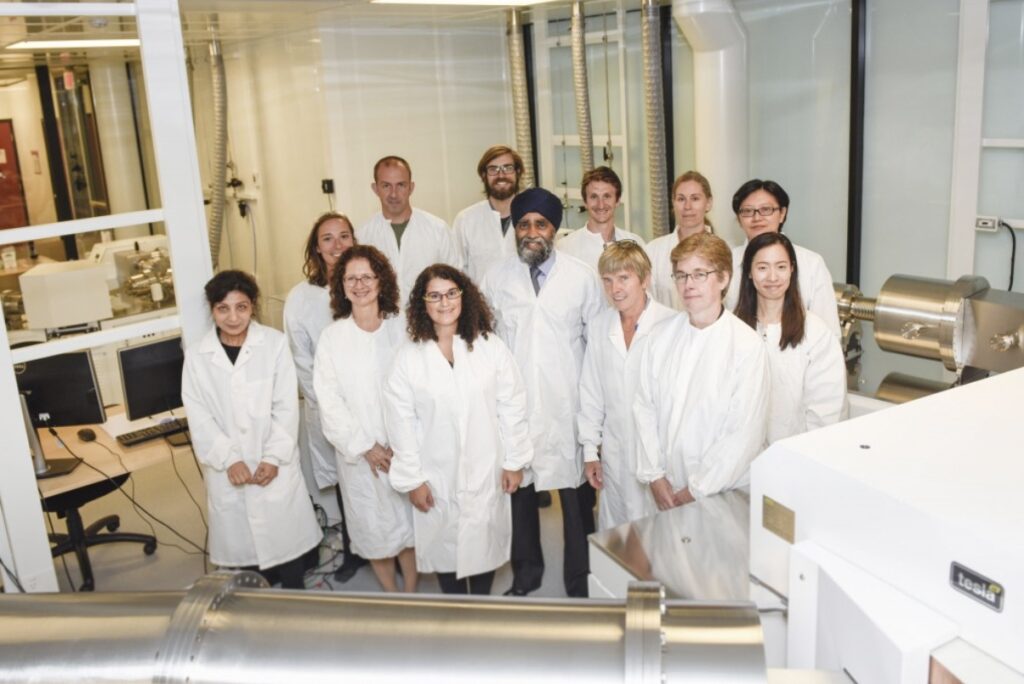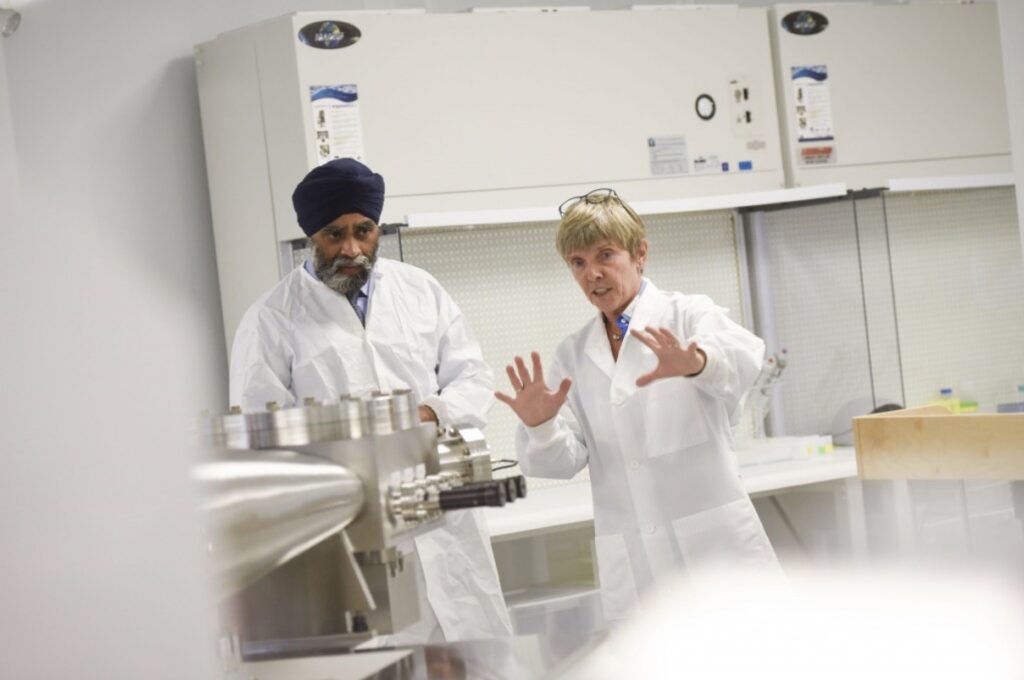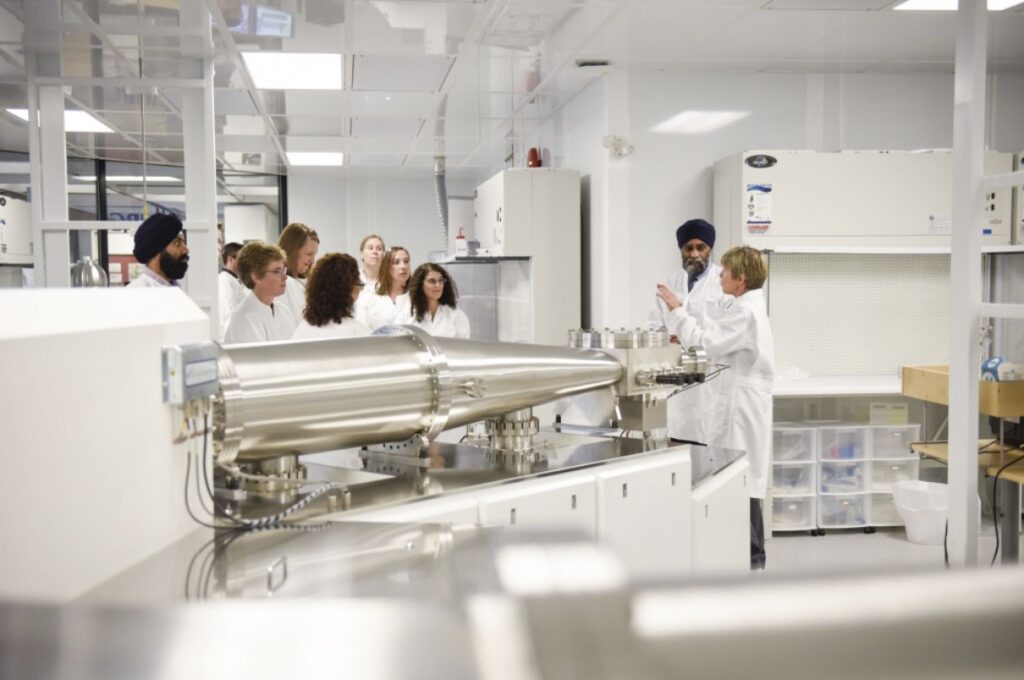September 8, 2017
PCIGR was pleased to host the Canadian Minister of National Defence, Harjit Sajjan, for a tour of our nUBC facility today.

The Honourable Minister was on campus, on behalf of Minister of Science Kirsty Duncan, to announce more than $42 million in funding to support fundamental research at UBC through competition for the 2017 NSERC Discovery Grants program, scholarships, and fellowships. CFI and BC-KDF grants supported the construction of the PCIGR laboratory facilities, and an NSERC RTI grant contributed to its ongoing operations.
The nUBC laboratory is classified as a clean room, a very specialized environment that is designed to reduce contamination. Because contamination can be brought in by people and their clothing, everyone entering the lab was required follow a strict gowning protocol.

The tour was led by PCIGR Director, Professor Dominique Weis, with assistance from her team of research staff and graduate students. The Minister was accompanied by Professor Gail Murphy, UBC Vice-President of Research, and Enikö Megyeri-Lawless, NSERC Director of Research Grants, Engineering and Life Sciences.
Many of the features and instruments in the lab were showcased, with a focus on the Nu1700 high-resolution multi-collector ICP-MS. The first of its kind in Canada, this instrument is special due to its large size and specialized components, including a >4-tonne magnet. Of particular interest to the Minister, this is the same type of instrument used by the military to analyze sources of uranium (depleted or enriched).

Another highlight of the tour was the RESOlution M-50-LR, operated by PCIGR research associate, Dr. Marghaleray Amini. The instrument is a laser ablation system that is coupled to an ICP-MS, and can ablate a wide range of geological and environmental materials at high resolution and low absorbance.
Near the end of the tour, PCIGR graduate students Rhy McMillan, Kate Smith, Jamie Cutts, and Anais Fourny, and postdoctoral fellow Miling Li, had the opportunity to briefly explain their research to the Minister. Their projects speak to the great diversity of research that is enabled by PCIGR’s instruments and staff.
In conclusion, the tour was a great opportunity to showcase PCIGR as a world-class geochemical facility. Thank you to the Minister and to everyone who joined us!
Minister Sajjan’s visit was recorded by UBC photographer Paul Joseph; additional photos are viewable here.

